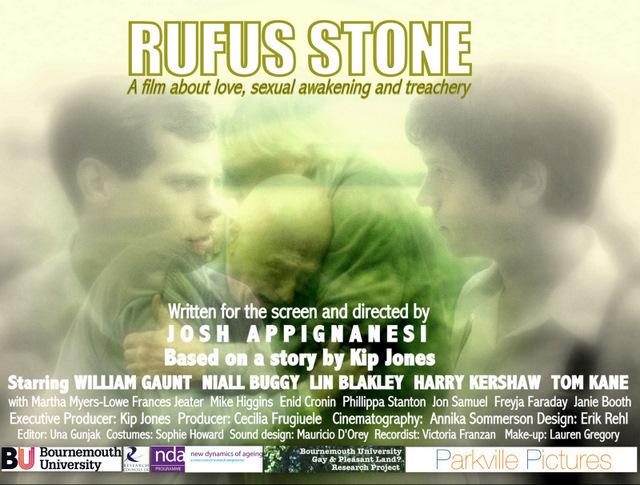 Exploring knowledge exchange and transfer processes and possibilities for SME internationalisation
Exploring knowledge exchange and transfer processes and possibilities for SME internationalisation
The Institute for Small Business and Entrepreneurship (ISBE) Research and Knowledge Exchange (RAKE) fund is an initiative supported by Barclays Bank and the Economic and Social Research Council (ESRC) administered through ISBE. This initiative aims to encourage and support research activities from academics, third sector organisations, consultants and practitioners with the ambition of drawing together and generating an entrepreneurial community of practice to facilitate knowledge exchange and transfer.
Applications are invited from individuals or teams. Collaborative bids which draw together any combination of third sector organisations, academic researchers, consultants and practitioners are welcome. The Principal Investigator must be employed within a UK institution but may be partnered with an international team. Research teams which demonstrate capacity building through collaborations between experienced and early career academics would be favourably considered; applications which demonstrate ‘in-kind’ contributions from partner organisations are welcomed as are those jointly funded from other sources. Applications presented as pilot studies, with the aim of generating future funding from other sources, are encouraged. As such, we wish to promote engagement with all who have an interest or stake in generating further insight and understanding into contemporary entrepreneurial activities, behaviours and practices. For the 2012 call for applications, a number of critical themes have been identified which are of contemporary interest and offer potential to develop knowledge exchange and transfer links.
Exploring processes and possibilities of SME internationalisation
There is a growing focus and interest upon the process of small firm internationalisation which includes ‘born globals’ and those firms tentatively seeking export opportunities. Axiomatically, smaller firms face a range of challenges related to resource accrual and management when entering international markets. However, a recent survey by UKTI found that the proportion of small UK firms exporting has increased by 10 percent since 2004. In addition, UKTI are actively supporting SME internationalisation on the basis that exporting firms are more productive and innovative, have greater resilient during economic down turns and exhibit lower failure rates than those firms focussed upon local markets. It would appear that internationalisation is an attractive option for SMEs in terms of potential returns but developing appropriate contacts, networks, resources, managerial capabilities and strategic partnerships is challenging. Accordingly, we invite proposals which investigate and analyse any aspect of the SME internationalisation process and specifically, any knowledge exchange and transfer issues. A potential but not exhaustive list of suggestions would include:
• Strategies to overcome barriers to the internationalization process for UK SMEs
• Developing capacity and dynamic capabilities through national and international partnerships between SMEs but also between SMEs and corporate firms
• Evaluations of policy support structures to encourage internationalization – exploring the opportunities of working with Local Enterprise Partnerships (LEPS), Chambers of Commerce and specific industry support groups
• Regional SME support for developing internalization strategies focused on specific sectors and value added industries
• Enhancing networks and information exchange possibilities between potential export firms and international partners
• Gaining knowledge of and tapping into potential new markets in developing economies
• Using networks and contacts to facilitate the export process
Attention is drawn to the current Business Engagement Strategy of the ESRC which embraces three broad priorities any of which can be mapped onto and integrated with the themes outlined above:
• Economic Performance and Sustainable Growth
• Influencing Behaviour and Informing Interventions
• A Vibrant and Fair Society
Clearly, the contribution of entrepreneurship and entrepreneurial activity can be mapped onto these priorities. Thus, applications which indicate their relevance to these issues would be welcomed. Despite any distinctive focus, it is emphasised that all proposals must clearly demonstrate and describe relevance to the notion of knowledge transfer and exchange related to the context of the bid.
For this round of funding, they envisage awarding a number of separate grants of around £10,000 – £12,000 each. These will not support full economic costing given ISBE’s position as a registered charity. Applications for smaller, seed corn funds would not be discounted however, bids of over £12,000 will not be considered.
Successful grant holders will be required to fulfil the following conditions:
• To be in membership of ISBE for the duration of the award
• To present their work at the annual ISBE conference
• To make findings available to the ESRC’s business channel on ESRC Society Today (EST)
• To produce a satisfactory end of award report within three months of the completion of the research
• To recognise the ISBE RAKE fund in any presentations or publications arising from an award
• To report to the RAKE fund management board to discuss research progress
Further details on the aims and constitution of the ISBE RAKE fund can be found at: www.isbe.org.uk/rakefund
The closing date for applications is 5 p.m. Friday 15th June 2012 with notifications of awards given by mid September. It is suggested that the earliest starting date for research projects should be 1st October 2012.
Completed applications may be returned electronically to Chris Rolles at chris@isbe.org.uk To download an electronic application form please click here Please submit applications in MSWord format – not as a PDF file. This enables anonymisation of proposals.
Applicants may contact the following ISBE board members and staff for informal discussions regarding their bids and/or the aims of RAKE:
Professor Susan Marlow s.marlow@bham.ac.uk VP: Research ISBE: RAKE Fund Manager.
Professor Lynn Marting l.martin@mmu.ac.uk ISBE President
Dr Maura McAdam m.mcadam@qub.ac.uk Board Member
Professor Gerard McElwee gerard.mcelwee@ntu.ac.uk Board Member
Professor Dean Patton dpatton@bournemouth.ac.uk Treasurer: ISBE
Lorraine Reese lorraine@isbe .org.uk Business and Events Manager: ISBE
The RKE Operations team can help you with your application.
 A new version of the ESRC Research Funding Guide is now available to download on their web site.
A new version of the ESRC Research Funding Guide is now available to download on their web site.



 Welcome to RCUK Demand Management week on the blog! Today’s focus is on the Economic and Social Research Council (
Welcome to RCUK Demand Management week on the blog! Today’s focus is on the Economic and Social Research Council (
















 Dr. Ashraf cited on ‘Modest Fashion’ in The Guardian
Dr. Ashraf cited on ‘Modest Fashion’ in The Guardian NIHR-funded research launches website
NIHR-funded research launches website Academics write for newspaper in Nepal
Academics write for newspaper in Nepal New paper published on disability in women & girls
New paper published on disability in women & girls Global Consortium for Public Health Research 2025
Global Consortium for Public Health Research 2025 MSCA Postdoctoral Fellowships 2025 Call
MSCA Postdoctoral Fellowships 2025 Call ERC Advanced Grant 2025 Webinar
ERC Advanced Grant 2025 Webinar Horizon Europe Work Programme 2025 Published
Horizon Europe Work Programme 2025 Published Horizon Europe 2025 Work Programme pre-Published
Horizon Europe 2025 Work Programme pre-Published Update on UKRO services
Update on UKRO services European research project exploring use of ‘virtual twins’ to better manage metabolic associated fatty liver disease
European research project exploring use of ‘virtual twins’ to better manage metabolic associated fatty liver disease